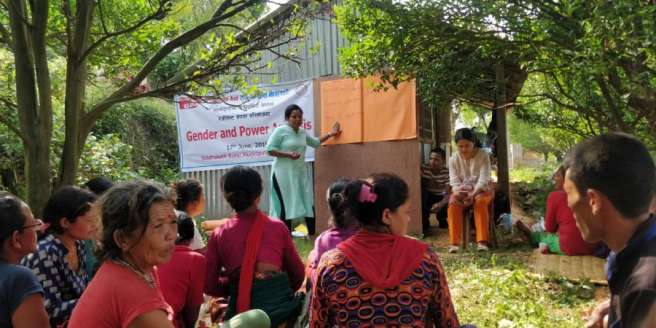Christian Aid Nepal has been training newly elected local government representatives, including mayors and deputy mayors, to bring transformative changes in the lives of women and other discriminated groups, including people with disabilities.
The project is one of several initiatives where Christian Aid works closely with communities and local government stakeholders to empower women and other marginalised groups to collectively demand their rights, as well as building the capacity of local government representatives to make their programme, plans and policies inclusive.
'We see immense opportunity to work for the most vulnerable and ensure that power structures are balanced and inclusive and the voices of these groups are heard and accounted for,' said Rakshya Shah, Christian Aid's programme development and funding manager Asia.
As a new cycle of local government budgeting and programme planning approaches in July 2019, Christian Aid and our partner FOCUS NEPAL held a learning workshop on the need and importance of gender and disability inclusive programming in Siddhalekh municipality, Dhading.
The main goal was to sensitise locally elected ward representatives and encourage them to focus upcoming programmes and budgets on gender and disability inclusion and meet the specific economic and social needs of vulnerable groups.
Kamala Sharma, Deputy Mayor of Dhading, voiced her support for the initiative and agreed there was a need to consider vulnerable groups in their work.
Image credits and information

Gender training for communities too
Christian Aid and FOCUS NEPAL has also carried out gender power analysis with women and men in communities in Dhading, looking at gender dynamics within the community and households.
At start of the sessions, most men believed they were working harder and taking more responsibility for financially supporting their families. But afterwards, they admitted they had not appreciated how much hard work women put in each day, which largely goes unnoticed. Men and women agreed to share responsibilities in future and work together, irrespective of their gender.
'When Christian Aid started working in the district after the 2015 earthquake it seemed like an impossible task to make people understand the importance of inclusion and work towards bridging gaps of power holders and powerless,' added Rakshya Shah.
'Now we are positive. There is still a long journey to go but we believe with support from community and local government, our dream of inclusive state is not so far.'
